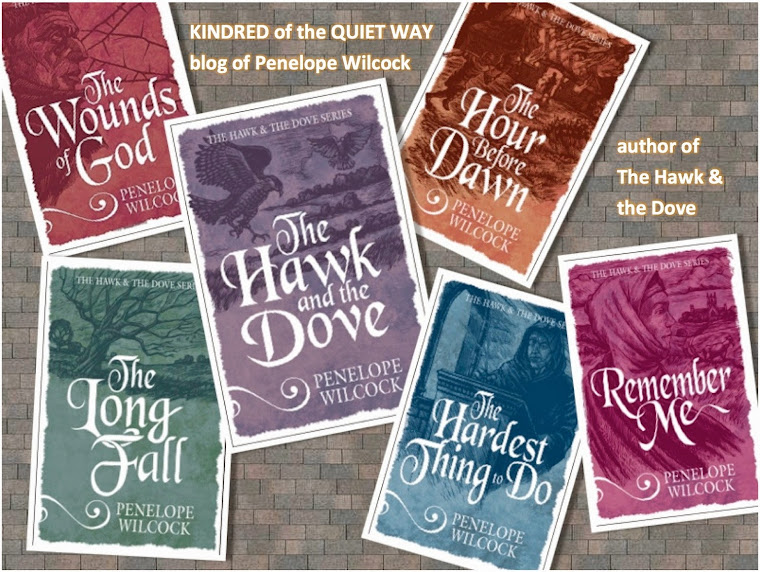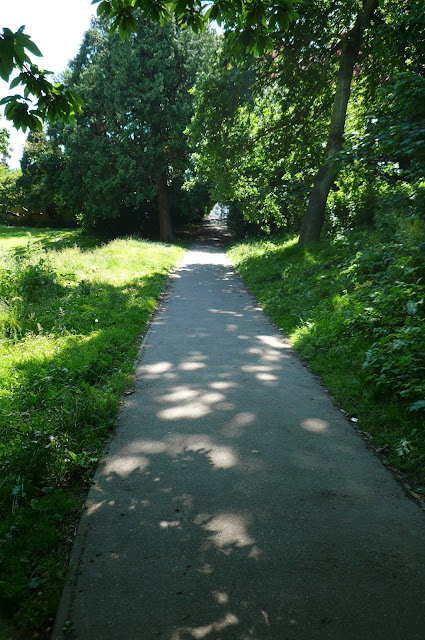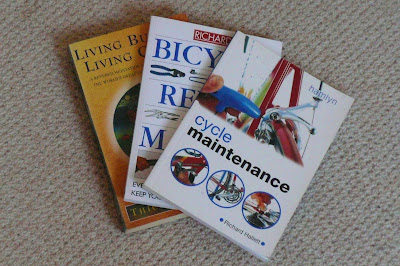Just at the moment my mind is full of St Joseph; thoughts set in motion because Alice is in process of making a stained glass panel depicting St Joseph holding the infant Jesus, for our Carmelite sisters at Thicket Priory.
Devotion to saints is a strange, uncomfortable thing to the
naturally Protestant mind. When we come
to the intercessions at church, not every Sunday but sometimes, we finish with
the Hail Mary. And my Badger never joins
in, because it is anathema to his soul steeped for a lifetime in evangelical
culture.
But I feel the presence of the saints, and I love the
different names for the Mother of Jesus – Our Lady of the Prairie, Our Lady of
the Streets, Our Lady of Sorrows, Our Lady of Grace. So beautiful. I have a special devotion to Our Lady of the
Pot Hooks, by which I mean my own personal sense of presence around the
provisional, make-do, wabi-sabi mode of furnishing and keeping house that has
been my habit. When I am cobbling
together a net curtain stretcher and cup hooks to hang the washing indoors, or
searching around for a trifle bowl or chamber pot to make a planter for a
Rather Large Fern, or upending a kneeler to double as a window box, I mutter “Our
Lady of the Pot Hooks, pray for us . . .”
Since I was fifteen years old – that’s forty years – I have
had a particular devotion to St Francis.
He has been my loved and revered role model this long time. But between me and Francis there’s one bone
of contention: he is too ascetic for me.
His simplicity is more than close to the edge, it hangs right off the edge. Francis – wonderful, magnetic, enchanting,
humble, beautiful Francis – he is more than a fraction unbalanced. That would be all right if it were not for
the fact that I am too. Francis is dangerous, you know. The cheerful, practical, loving humility of modern-day
Franciscans, yes that’s fine. But
Francis himself, stumbling in pain with his bleeding hands and feet, freezing
and starving, hungry and homeless, ripping off his clothes and abasing
himself. There’s something there that
murmurs a warning in my soul. Same with
Mother Teresa, who left nothing for herself, nothing, lived in the exile of her
self-punishing dark night for decades.
The holiness of these lives is bought at the cost of something that
feels, to me, profoundly unhealthy.
And recently I have been thinking more and more about St
Joseph, and what a wonderful role model he is.
St Joseph speaks to my life and condition with a strength and
encouragement that astonishes me.
He is revered in the church in three primary aspects: as the
husband of Mary, as the protector of Jesus, and as Joseph the Worker.
Here are some of the things St Joseph has been teaching me.
We never hear of St Joseph saying anything. He teaches us
about silence. He shows us that silence
is what nurtures the Word and allows it to mature in safety. He leads us in a way of going on quietly with
the work of our hands.
Joseph raised a family, and he took it upon himself to cherish and provide for them responsibly. By
simple, honest, home-based labour he took care of the people he loved, whom God
had entrusted to his care.
Joseph worked at a trade that could be practiced without exploiting
others, developing skill and creativity, designing and shaping objects of
usefulness as well as beauty.
Joseph listened to God.
You know and I know that hearing and recognising the voice of God
accurately relies on practice, on habit.
That God spoke to Joseph in his dreams, such that Joseph responded with
obedience and conviction, first taking Mary to be his wife and then shepherding
his little family away from the danger of persecution into exile in Egypt,
tells me that Joseph was in the habit of listening to God.
Joseph was compassionate, and thoughtful. When he discovered Mary to be with child,
before God spoke to him in the dream, he didn’t rant and shout and expose her
to public humiliation; he just made plans quietly and privately to terminate
their betrothal.
And that also tells me that Joseph was a man of principle
and conviction, a man to whom integrity mattered immensely.
Joseph was unselfish.
Taking Mary and Jesus into his life was a big thing to do. They relied upon him for stability and
security. They brought with them
challenge and upheaval. He accepted that,
because he loved Mary and Jesus. He was
a normal householder who, because of his love for them, accepted the
consequences of having Mary and Jesus at the heart of his home and his everyday
life.
Joseph was capable, calm and sensible. He was provident, wise and kind.
Joseph lived an ordinary life in an ordinary home, but he
did it with such grace that God chose that life, that home, that man to be the
cradle of redemption, the school of grace, the arms that held and cuddled the
hope of the world.
Having a devotion to a saint means not making them more
important than God, but gazing upon them intently and thoughtfully, allowing
the wisdom they particularly teach to soak into one’s consciousness to inspire
change.
The thing about the saints is that they are at one and the
same time individual real human lives, archetypes, and bearers of the light of
Christ.
In their simple humanity, their individuality, they speak to
and encourage our hope of progressing in the Christian way.
As archetypes, they tap into / draw upon the interconnecting
root system of our universal unconscious, facilitating access to a source of
common human strength and wisdom.
As bearers of the Christlight, they keep us mindful of the
transcendent dimension which both indwells our lives and shines as a guiding
star.
Because you lived in an ordinary home like ours and know all
about the struggles and challenges of family life, St Joseph pray for us.
Because we too want to be kind, mastering unselfishness and
fostering the presence of Jesus in our daily lives, St Joseph pray for us.
Because it is hard to find ways in the modern world to make
an honest living and still have time for our families, St Joseph pray for us.
Because you lived simply as we long to do, St Joseph pray
for us.
Because we too want to work creatively and usefully,
avoiding mass-production and sweatshops, choosing the craftsman’s skills and
patient labour, St Joseph pray for us.
Because we too want our homes and lives to be a kind of
sanctuary where the people God has entrusted to us will always feel safe and
loved, St Joseph pray for us.
Because you are comfortable with silence, and know how to
live with humility, patience and self-restraint, St Joseph pray for us.
Because your faith shaped your choices and decisions,
because you believed in God enough to change your mind, St Joseph pray for us.
Because we too would be capable, responsible, gentle and
calm, St Joseph pray for us.
In your kindness, understanding and trustworthy strength, St
Joseph pray for us, that we may follow in the way you have showed us to go.
Amen.
---------------------------------------------------
365 366 Day 164 – Tuesday
June 12th
Things like this just kinda waft into my life. A dear little organza bag. I cannot bring myself to say “Ah, sweet!” and
chuck it in the bin. That would be such
a waste and irresponsible attitude to the Earth’s resources. So object by object, thing by thing, I have
to identify suitable new homes for all these disconcertingly eternal items that
find their way into my home.



























